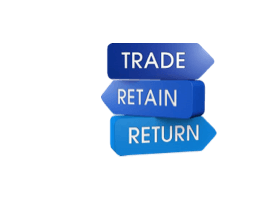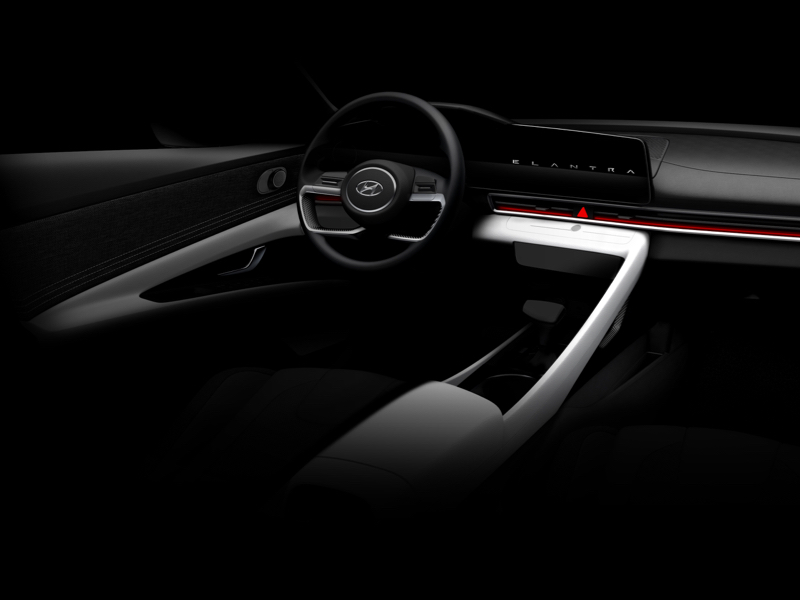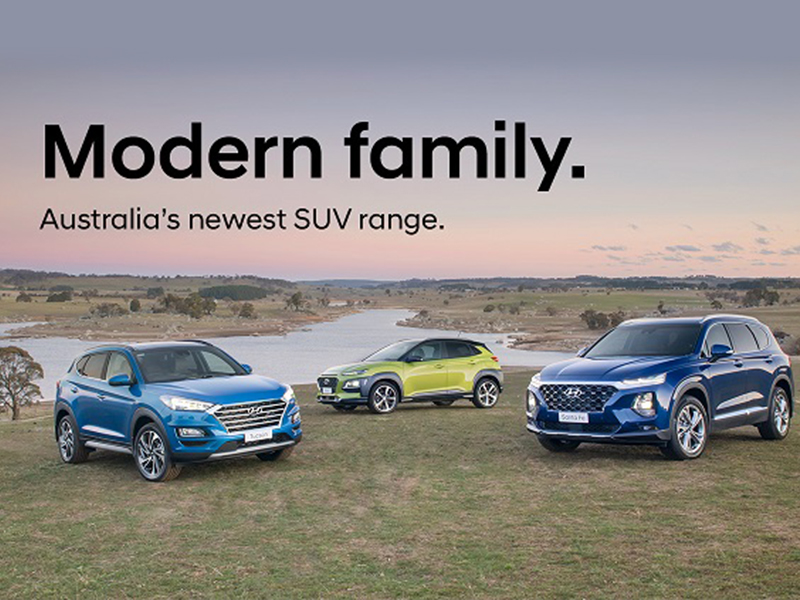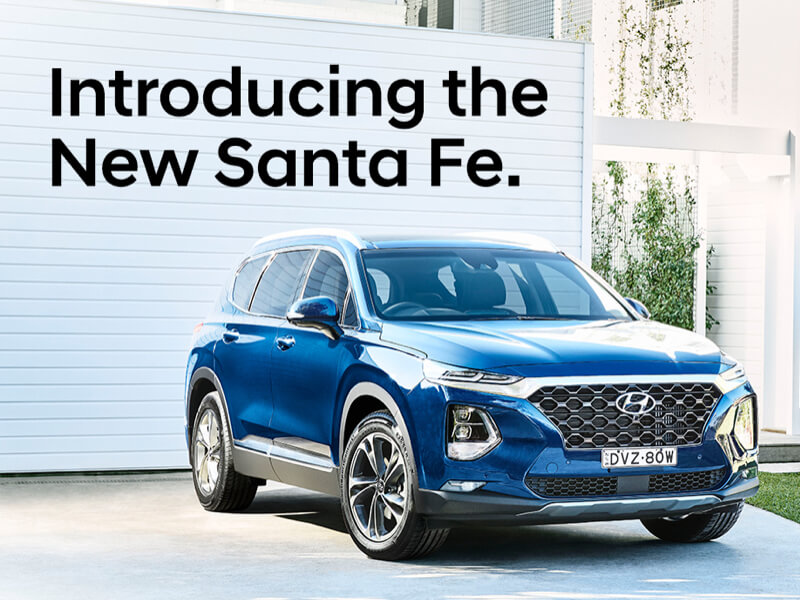Hyundai Motor reveals vision for hydrogen energy and software solutions beyond mobility at CES 2024
- Under the theme ‘Ease every way' , Hyundai highlights its commitment to lead human-centric life innovations with hydrogen energy as well as software and AI
- Introduces HTWO’s hydrogen value chain solution that spans production, storage, transportation and utilization
- Details development of a Megawatt-scale PEM electrolyzer for green hydrogen production and resource circulation hydrogen production methods
- Hyundai Motor Group projects to off-take 3 million tonnes of hydrogen per year by 2035
- Introduces ‘Software-defined Everything’ (SDx) strategy by redefining vehicles, fleets and transportation systems with software and AI
- Plans to develop SDVs by incorporating software development methods to vehicle development process
- Expanding software solutions to business customers for fleet operations and insights by offering customized fleet management services and real-time data analytics
- Highlights ultimate aim of SDx transition where users, devices and city are all interconnected so that transportation-as-a-service is provided to everyone
- Hyundai shows its hydrogen value chain, waste-to-energy method, SDV technologies and future mobility exhibits at the Las Vegas Convention Center,
January 9–12
Hyundai Motor Company today presented its vision for a hydrogen-powered, software-driven transformation beyond mobility applications at CES 2024. Under the theme ‘Ease every way,’ the company held its Media Day at the Mandalay Bay Convention Center in Las Vegas to highlight its future blueprint for a hydrogen energy ecosystem and a vision for software and artificial intelligence (AI).
In line with Hyundai Motor’s brand vision, ‘Progress for Humanity,’ the ‘Ease every way’ theme reflects the company’s aim to create a comfortable and peaceful living environment by providing three core universal values of freedom, safety, and fairness for the global community. It goes beyond the mere physical utility value of technology and caters to the complex daily lives of people, providing freedom from various limitations, safety in communities from software security and reduced greenhouse gas emissions through hydrogen, and fair accessibility to clean energy and related services.
"At Hyundai, we believe that science and humanity are two sides of the same coin; that advanced technology should also make people’s lives better,” said Jay Chang, President and CEO of Hyundai Motor Company. “Clean hydrogen should be for everyone, powering everything, and available everywhere.”
“We measure progress with the real and positive impact it has on humanity,” said José Muñoz, President and Global COO of Hyundai Motor Company. “Our theme for CES 2024, ‘Ease every way,’ is a monumental challenge. But the challenging spirit embedded in the DNA of our 56-year history will continue through the hydrogen and software transformations we’ve unveiled today.”
An innovative solution for hydrogen production, storage, transportation and utilization
Hyundai Motor Group (the Group) has already announced a commitment to achieve carbon neutrality by 2050, substantiated by a clear RE100 roadmap to use 100 percent renewable energy in its overseas factories by 2045 and in every Group entity by 2050. Hydrogen energy will play a prominent role in achieving those objectives.
For nearly half of the company’s existence, Hyundai has been at the forefront of the hydrogen momentum, achieving many firsts, including the world’s first mass-produced fuel cell electric vehicles (FCEVs). It now has the world’s highest market share in hydrogen-powered vehicle sales.
Hydrogen plays a crucial role in Hyundai’s sustainability roadmap as it is a clean energy source, with water being its only byproduct when used as fuel. It also enables the maximization of renewable energy utilization worldwide due to its advantages in storage and distribution. Hyundai sees hydrogen as the path to a sustainable future, as it is both clean and accessible.
Hyundai’s hydrogen solutions go beyond passenger cars, trucks and buses to include trams, special equipment, vessels, power generators and advanced air mobility. The company is driving the energy transition as a major hydrogen off-taker.
Hyundai isn’t alone in its commitment to hydrogen energy. In June 2023, the U.S. published its National Clean Hydrogen Strategy and Roadmap for accelerating the production, processing, delivery, storage and use of clean hydrogen. In December at COP28, the International Hydrogen Trade Forum and the Hydrogen Council launched a suite of flagship initiatives to accelerate the commercialization of hydrogen to transition away from fossil fuels.
To further emphasize its commitment to hydrogen, Hyundai highlighted the expansion of HTWO from a fuel cell system brand into Hyundai Motor Group’s hydrogen value chain business brand. HTWO now encompasses the Group’s businesses and affiliates, enabling each stage of the entire clean hydrogen value chain, from production and storage to transportation and utilization. HTWO represents ‘Hydrogen’ and ‘Humanity,’ the two main pillars of Hyundai’s fuel cell business.
The HTWO business leverages the Group’s wide-ranging capabilities in various sectors, such as automobile, parts, steel, construction, air mobility, marine, robotics and future technologies. The model focuses on the four core areas of the energy value chain: production, storage, transportation, and utilization. The Group’s affiliates are positioned throughout the value chain, forming a hydrogen grid that allows for the development of tailored end-to-end hydrogen solutions.
Traditionally, automakers have focused on vehicle utilization, while other industries have covered energy production, storage and transportation. This approach has led to a slow and challenging energy transition process. Hyundai aims to overcome these limitations by combining and integrating its Group-wide hydrogen competencies to revolutionize the energy transition and accelerate the establishment of a hydrogen society.
Hyundai’s new identity as a sustainability player builds upon its core identity as an automobile company. One of the company’s aims is to contribute to the establishment of a hydrogen society by encouraging hydrogen off-takes. Through the HTWO brand, Hyundai Motor Group projects that it will off-take 3 million tonnes of hydrogen per year by 2035, powering businesses, such as clean logistics, green steel production and power generation.
During the presentation, Chang Hwan Kim, Senior Vice President and Head of Hydrogen Fuel Cell and Battery Development, explained that Hyundai is also developing megawatt-scale polymer electrolyte membrane (PEM) electrolyzer manufacturing capabilities for green hydrogen production, which is expected to commercialize within the next few years. Hyundai, through sharing components of fuel cell systems, plans to achieve a competitive price compared to existing PEM technologies. While the current market price of PEM electrolyzers is about 1.5 times higher than that of alkaline electrolyzers, the company is confident the price will drop below the alkaline electrolyzers through component sharing.
Furthermore, the Group is concentrating on resource circulation hydrogen production technology that aims to transform environmental pollutants into clean hydrogen. The resource circulation technology that Hyundai focuses on includes two approaches: Waste-to-Hydrogen (W2H) and Plastic-to-Hydrogen (P2H). W2H involves the fermentation of organic waste, such as food, sludge and livestock manure, to generate biogas. This biogas is then treated to capture carbon dioxide and produce hydrogen. P2H, on the other hand, involves melting waste plastics that cannot be recycled, gasifying the molten plastics and producing hydrogen by removing unnecessary elements.
Hyundai is actively involved in various hydrogen projects globally, starting with Indonesia. The country has shown a growing interest in hydrogen as a crucial pathway to achieving carbon neutrality. There is a need to initiate hydrogen adoption at the local level to foster regional acceptance of this new energy source and drive the establishment of a hydrogen ecosystem throughout Indonesia.
In Indonesia, Hyundai is beginning with Waste-to-Hydrogen, through the utilization of waste from local communities, enabling the city to establish its own hydrogen production mini-hubs, eliminating the need to depend on hydrogen transportation and storage. With various off-takers entering the scene, the region will witness the formation of a hydrogen industrial cluster around the hub, thereby promoting the growth of a hydrogen society.
Currently, under the partnership with Indonesia, Hyundai is actively seeking the right location in West Java to deploy the HTWO grid solution. This will not only benefit Indonesia but also stands to benefit ASEAN markets in the long run, where hydrogen could play a significant role in driving both the carbon neutrality movement and economic development.
Hyundai is also actively involved in hydrogen-related demonstration projects in the U.S. where it plans to apply the HTWO Grid solution centered on utilization. This includes participation in the NorCAL ZERO project in Northern California, which involves 30 Hyundai XCIENT Fuel Cell trucks to support the decarbonization of the Port of Oakland. The Group will also play part of the ‘Regional Clean Hydrogen Hubs’ program, part of a $7 billion U.S. government initiative for hydrogen infrastructure development.
Hyundai is actively developing hydrogen solutions tailored to specific customer needs. In Georgia, it is working on the Clean Logistics Project, which revolves around the development of a hydrogen mobility value chain at Hyundai Motor Group Metaplant America (HMGMA). This dedicated electric vehicle (EV) factory under construction in Georgia expects to produce up to 300,000 EVs annually. Through the Clean Logistics Project, the Metaplant will integrate a comprehensive hydrogen value chain, commencing with the deployment of XCIENT Fuel Cell tractors to manage the logistics of the plant. Hyundai is initiating this project through utilization, backed by its Group counterparts, with the aim of establishing the foundations of a hydrogen infrastructure.
Hyundai’s collaboration with various industries and sectors in Georgia is poised to generate a significant impact, attracting a diverse range of stakeholders to participate in the hydrogen value chain. This collaboration is anticipated to stimulate economic growth and create job opportunities within the state.
“Hyundai's proven history with hydrogen gives Georgians a clearer picture and better understanding of this remarkable opportunity before us, as we further Georgia’s position on the cutting edge of this emerging industry,” said Pat Wilson, Commissioner of the Georgia Department of Economic Development. “These advancements will fuel economic growth and job opportunities in our state, and we look forward to collaborating and focusing on expanding clean technology across a variety of industries and sectors. Having seen the real-world applications already being delivered by Hyundai, we’re excited that Georgia is part of Hyundai’s future.”
SDx: Building a user-centered mobility ecosystem by defining vehicles, fleets and transportation systems with software and AI
Hyundai is undergoing a software-driven transformation led by the entire Group. As a provider of smart mobility solutions, Hyundai recognizes the importance of software and AI in creating a user-centric mobility ecosystem. At CES, the company announced its ‘Software-defined Everything’ (SDx) strategy, which aims to transform all moving devices, fleets and ecosystems into valuable assets through advanced software and AI.
Through its SDx strategy, the Group seeks to develop a mobility ecosystem that meets the needs of users anytime and anywhere. To achieve this, the Group is transitioning everything into a software-defined approach, from vehicle development to building the entire mobility ecosystem. It believes software and AI are enablers of achieving this vision through providing holistic user experience without limitations and is dedicated to delivering mobility services and solutions that prioritize convenience and safety.
The Group’s strategy begins with developing ‘software-defined vehicle’ (SDV). This means to incorporate software development methods to automotive development which means to decouple hardware and software to enable independent updates and advancement of each. The network and controllers are designed within the SDV framework, enhancing development agility and efficiency. This increases the flexibility and scalability of the vehicle development system, enabling faster updates of user-centric features and continuous improvement of device.
To enhance the user experience, the Group plans to develop a new infotainment system that supports a vehicle app market. They will also provide software development kits (SDKs) for developers to create killer apps. Additionally, the Group aims to integrate its own large language model (LLM) into their AI assistant and navigation system. This integration will enable more natural and convenient user interaction and experience with enhanced user safety.
As SDVs become more common and standardized, management of large-scale fleets will become easier and more efficient. Beyond individual vehicles, the Group is expanding its software solutions to include software-defined fleets for businesses. These solutions offer customized fleet management services, real-time data analytics and user-friendly administrative interfaces, allowing B2B customers to operate vehicles more efficiently and address real-time issues. The Group will offer vehicle data, advanced fleet management services, data analytics and valuable insights to B2B customers of different hardware and software requirements, all without the need for separate telematics devices.
As vehicles, fleets and mobility in general gets defined and developed by software, they will then get AI-defined. The Group envisions vehicles evolving into ‘AI machines’ that continuously learn to better serve customers and transforming vehicles into AI machines that continuously learn to better serve customers and deploy optimized machine learning operations (MLOps). Transforming vehicles into AI machines will enable the Group to automate maintaining and updates of vehicle, simplify or eliminate tedious tasks, provide transparent data, prevent and promptly address potential issues, personalize user experiences and accelerate the enhancement of services and solutions to deliver added value for users. This will contribute to stable and efficient operation of not only devices, but also mobility, logistics, and overall urban operating system.
The ultimate goal is to create a concept called ‘Cloud Transportation’ where software, AI-defined devices and mobility come together to create a mobility ecosystem where transportation is easily accessible to everyone. This concept, referred to as ‘transportation-as-a-service,’ allows users to freely access transportation and mobility services as needed. Everyone, along with devices and city infrastructure, will be interconnected within an ecosystem, enabling on-demand access to transportation and automatically increasing the intelligence of mobility solutions over time. The Group is currently operating various advanced mobility services, such as demand-responsive transport and self-driving taxis, and collecting data to further advance SDV technology, including autonomous driving, to establish a foundation for Cloud Transportation.
“As a mobility solution provider, our vision goes beyond vehicles”, said Chang Song, President and Head of Hyundai Motor Group’s SDV Division. “It's about empowering a mobility ecosystem. We see movement as a new source of knowledge and innovation. And our solutions and devices make that knowledge universally useful.”
The Group presented its recent partnership with Tenstorrent, a company specializing in designing neural processing units (NPUs), further enhancing the Group’s commitment to software and AI advancements.
“Tenstorrent is building a silicon future that you can own. Our hardware and open source software will let you build the products you want,” said Jim Keller of Tenstorrent. “Hyundai is building cars, factories, robots, autonomy, infotainment and smart systems. Tenstorrent is aligned with every part of that vision. We’re excited to join Hyundai in gaining the independence to win the high-stakes technology race.”
In his closing remarks, President Song highlighted the Group’s ongoing dedication to user convenience and safety, which have been core values since its inception. The Group’s software-development philosophy of ‘Service-defined, safety-designed’ reflects its mission to provide hassle-free mobility experiences with reliable and secure devices. By leveraging software and AI, the Group aims to develop services and solutions that meet users’ needs responsively, while also taking responsibility for ensuring safety throughout all aspects of mobility, including device stability, data protection and cybersecurity.
Hydrogen value chain and software technologies on display at CES 2024
Hyundai is showcasing its waste-to-hydrogen production and hydrogen value chain as well as SDV technologies and future mobility concepts at CES 2024. Attendees can visit the company’s exhibition booth at the Las Vegas Convention Center, West Hall, from January 9–12.
The exhibition revolves around the theme of ‘Ease every way,’ focusing on a human-centric future to come through the application of hydrogen energy and software technologies. In the entrance, the plastic-to-hydrogen process, in which waste plastic is transformed into clean hydrogen energy, can be seen on a large immersive three-sided display.
In the middle of the booth, there are various HTWO Grid solutions and hydrogen value chain demonstration projects on display that span Hyundai Motor Group, including Hyundai Motor, Hyundai Rotem, Hyundai E&C, Hyundai Engineering, Hyundai Glovis and Hyundai Steel. The comprehensive hydrogen solutions and demonstration projects on display covers all hydrogen value chain solution that spans production, storage, transportation, and utilization including resource-circulating hydrogen production (e.g., W2H and P2H), green hydrogen production, hydrogen distribution and logistics, ammonia carriers, fuel cell trams, green steel, fuel cell electric trucks and mobile fuel cell generators.
Also two physical exhibitions that enhance visitors’ understanding of our hydrogen business can be found on the booth. On display is a sectional model explaining the driving principle of a mobile fuel cell generator, which can be used in emergency situations, remote areas where power is difficult to obtain and EV racing events (e.g., eTCR). There is also a diorama explaining the waste-to-hydrogen process, illustrating how the biogas generated from waste is converted into hydrogen energy.
Hyundai is also showcasing key SDV technologies under development by the Group’s Global Software Center 42dot. It includes a demo of the new E&E architecture for SDV, a system that decouples hardware from software to increase flexibility and scalability. The new simplified architecture has a centralized HPVC (High-Performance Vehicle Computer) and zone controllers responsible for controlling the sensors and actuators with a fault tolerant architecture.
In addition, there are films explaining the core SDV technologies developed to date encompassing next-generation vehicle networks run by SDV OS, autonomous driving, safety-designed vehicles, SDV technologies extending into smart cities with high-fidelity fleet management, and LLM-based AI assistant. Hyundai will also present a film on software-defined mobility services in motion equipped with advanced technologies operated by various companies within the Group.
The exhibition booth also displays videos that showcase major demonstration projects related to hydrogen, as well as expected customer values from Hyundai’s vision for a future based on hydrogen and software.
Furthermore, the exhibition features three large-scale future mobility exhibits and Boston Dynamic’s ‘Stretch,’ highlighting how customer experiences will change based on hydrogen, software and robotics technologies. These exhibits include personal mobility (DICE: Digital Curated Experience), social mobility (SPACE: Spatial Curated Experience) and commercial mobility (CITY POD).
Hyundai Motor Embraces Digital Engagement: Roblox Hyundai Map and livestreaming CES 2024 announcements to global audience
The hydrogen, robotics, and future mobility-related activities of Hyundai can be indirectly experienced not just at the CES exhibition booth but also through the digital metaverse platform called ‘Roblox Hyundai Map.’
Hyundai Motor plans to further showcase innovative technologies and future visions by livestreaming major CES 2024 announcements from the Hyundai Media Day via the company’s global YouTube channel.







